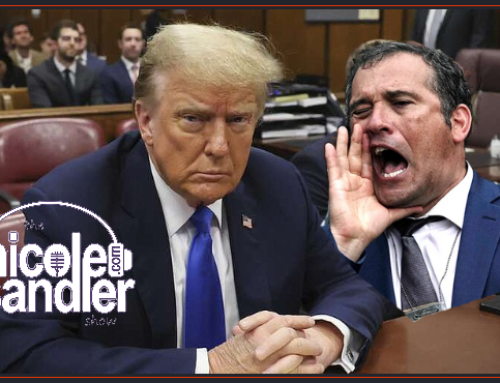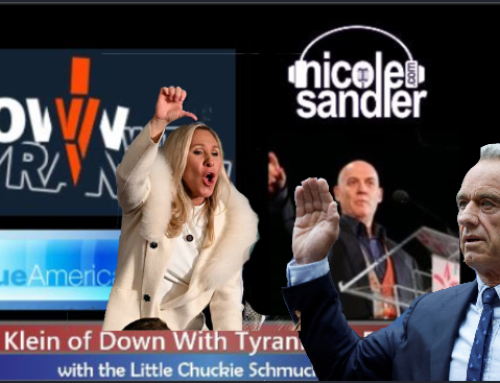It happened yesterday. Sen Ron Wyden cut a deal with the devil (also known as Orrin Hatch, with an assist from Paul Ryan) to introduce legislation to “Fast Track” the Trans Pacific Partnership.
First, for the uninitiated, to answer the question “What is the TPP and why is it so bad?,” please watch and share this short video:
Now that we have the basics covered, on to Trade Promotion Authority, or Fast Track. This procedure would limit debate (according to Rep. Alan Grayson, it comes to about 88 seconds per member!), and prohibit amendments to the deal.
The New York Times did cover the deal to introduce the Fast Track legislation, although I saw no mention of it on the TV “news” last night.
WASHINGTON — The leaders of Congress’s tax-writing committees reached agreement Thursday on legislation to give President Obama “fast track” authority to negotiate an ambitious trade accord with 11 other Pacific nations, beginning what is sure to be one of the toughest legislative battles of his last 19 months in office.
The “trade promotion authority” bill — likely to be unveiled Thursday afternoon — would give Congress the power to vote on the Trans-Pacific Partnership once it is completed, but would deny lawmakers the chance to amend what would be the largest trade deal since the North American Free Trade Agreement.
Senator Orrin G. Hatch, chairman of the Senate Finance Committee, and Representative Paul D. Ryan of Wisconsin, chairman of the Ways and Means Committee, had to agree to stringent requirements for the trade deal to win over Senator Ron Wyden of Oregon, the ranking Democrat on the finance panel. Those requirements included a human-rights negotiating objective that has never existed in trade agreements, according to lawmakers involved in the talks.
The legislation would also make any final trade agreement public for 60 days before the president signs it, and up to four months before Congress votes. If the agreement, negotiated by the United States Trade Representative, fails to meet the objectives laid out by Congress — on labor, environmental and human rights standards — a 60-vote majority in the Senate could shut off “fast track” trade rules and open the deal to amendments.
“We got assurances that U.S.T.R. and the president will be negotiating within the parameters defined by Congress,” said Representative Dave Reichert, Republican of Washington and a senior member of the Ways and Means Committee. Referring to the trade promotion authority, he added, “And if those parameters are somehow or in some way violated during the negotiations, if we get a product that’s not adhering to the T.P.A. agreement, then we have switches where we can cut it off.”
Mr. Reichert said the Ways and Means Committee would formally draft the legislation next week.
Even with those concessions, the fight to get the trade promotion bill to the president’s desk will be difficult and emotional, badly dividing the Democratic Party’s labor base and putting Hillary Rodham Clinton in a quandary. Many prominent Democrats have come out against one of the biggest priorities of their president. Representative Sander M. Levin of Michigan, the ranking Democrat on the House Ways and Means Committee, was notably absent from trade negotiations.
The A.F.L.-C.I.O. and virtually every major union have vowed a fierce fight, including a six-figure advertising campaign to pressure 16 selected senators and 36 House members to oppose trade promotion authority, the A.F.L.-C.I.O. announced on Thursday.
Lori Wallach, Director of Public Citizen’s Global Trade Watch issued this statement:
The Fast Track bill introduced today would revive the old unacceptable Fast Track process. It would delegate away Congress’ constitutional trade authority and give blank-check powers to whoever may be president during the next three to six years for any agreements he or she may pursue.
Instead of establishing a new “exit ramp,” the bill includes the same impossible conditions from past Fast Track bills that make the mechanism to remove an agreement from Fast Track unusable. The bill’s only new feature in this respect is a new procedure that would be usable only after an agreement was already signed and entered into and that would require approval by 60 senators to take a pact off Fast Track consideration, even though a simple majority “no” vote in the Senate would have the same effect on an agreement. In contrast, the 1988 Fast Track empowered either the House Ways and Means or the Senate Finance Committees to vote by simple majority to remove the pact from Fast Track consideration with no additional floor votes required, and such a disapproval action was authorized before a president could sign and enter into a trade agreement.
Fast Track for the Trans-Pacific Partnership (TPP) would make it easier for corporations to offshore American jobs, would undermine our wages by forcing Americans to compete with Vietnamese workers making less than 60 cents an hour and would expose our consumer and environmental safeguards to attack by foreign corporations in extra-judicial tribunals.
Even though the TPP is almost complete, and the Obama administration dismissed bicameral, bipartisan majority demands that the TPP include disciplines against currency cheating, Congress is now being asked to delegate away its constitutional trade authority over the TPP.
This is almost identical to the Fast Track bill that was dead on arrival in the House last year. We don’t see it passing. Congress has allowed Fast Track to go into effect only for five of the past 21 years (2002-2007).
Please visit StopFastTrack.com and read more, and get involved! And spread the word. We can stop this monstrosity, but only if we all work together to do so.
As if that’s not enough to make our minds reel all weekend long, consider this: Monday marks the fifth anniversary of the BP/Deepwater Horizon explosion in the Gulf of Mexico. This morning, I spoke with Antonia Juhasz, a leading oil and energy expert, policy analyst, author and investigative journalist. She’s written a number of books on the topic, including Black Tide: The Devastating Impact of the Gulf Oil Spill, and numerous articles, including this 2013 piece for Rolling Stone, “Big Oil’s Big Lies About Alternative Energy.”
Her long-awaited article detailing her expedition to the Deepwater Horizon site last March will be published in the June issue of Harpers magazine, due next month. I look forward to having Antonia back on the show when it’s released to delve more deeply into what she saw. In the meantime, check out her website at antoniajuhasz.net.
Flashback Friday!
We wrap up each week here on the show with a musical blast from my radio past. Today, it was back to September 25, 1995 for an interview with and performance from the late, great Jeff Healey and his band. We lost Jeff Healey to cancer in 2008. Thankfully, I had this incredible moment with him, and for that, I am grateful.
Enjoy… and we’ll be back Monday to take on a brand new week, radio or not!









Unless it is possible that a real insurgent candidate could gain traction in the Democratic primaries, I would treat whatever a candidate says about TPP with a grain of salt!
Because up here in Canada, we went through an election in the 90’s fought over two big issues: a much reviled national sales tax (GST), and the first of the trade pacts – FTA-NAFTA. The Liberal Party leader – Jean Chretien, promised to scrap both if he was elected Prime Minister…..and he reneged on both promises…a cabinet minister who spoke out against the double-cross (John Nunziata) was fired and eventually drummed right out of the Liberal Party for refusing to shut up about the issue, and the rest of Canada realized that the fix was in whichever party won the election!
And the point of all of this is that unless the Stop the TPP activism and other activists move beyond their single issue causes and become part of a wider populist left movement, and avoid being co-opted by politicians making promises, nothing of substance will be done to stop the slide into global corporate governance.
If it’s just the same old game of finding and electing the perfect candidate, it will just be more disappointments once they take office and ignore, back out of or deny their campaign promises they made to get elected!
BP continues to run ads locally here in Fla touting how much they did to clean up the spill and help people who were affected.
Lot of interesting recent reporting that shows how much of a lie that’s been. Plus ca change.
Any candidate that wants to win Iowa, should be bringing up that they would fight the TPP since it would favor Kubota over John Deere and Komatsu over Caterpillar. These factories are on par with automotive assembly plants and are the base of Iowa’s industrial economy. Kubota must already be fearing it because of their large buys on WCPT for ad time.